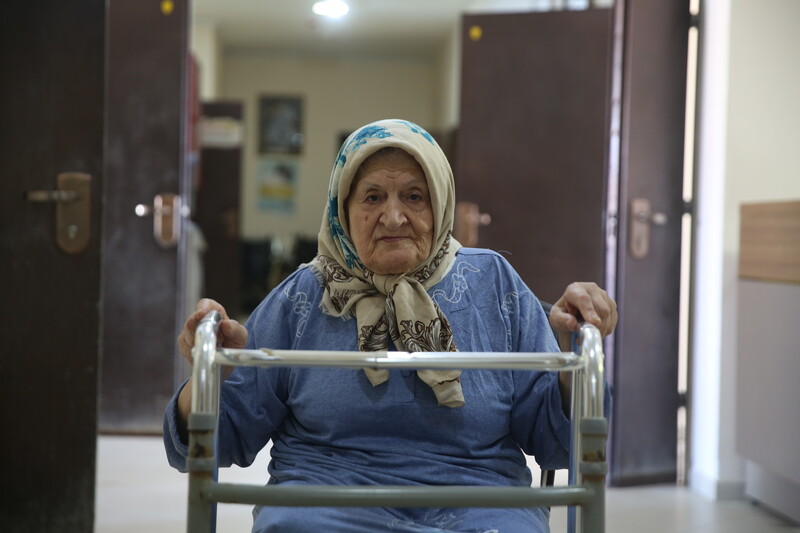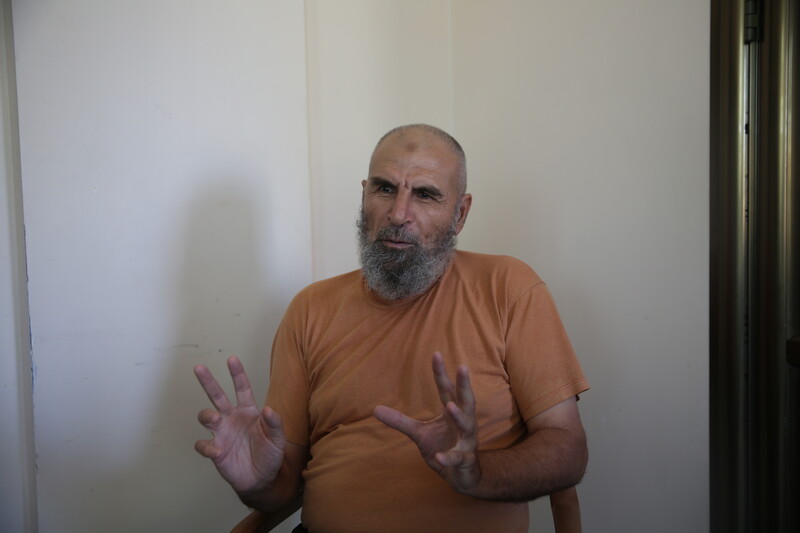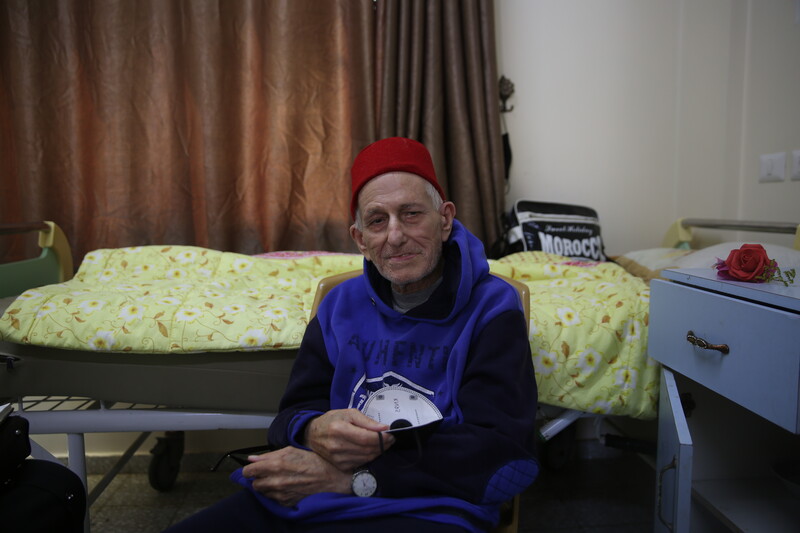The Electronic Intifada 13 July 2021

For Hind Kaddas, Israel’s recent attack on Gaza was among the “most painful” violence she has experienced.
Everyone in Gaza was affected by Israel’s attack during May. More than two million people in the coastal strip were terrorized by a bombardment sustained over 11 days.
The anguish was especially acute for residents of al-Wafa, a nursing home in central Gaza. They could not turn to family members for comfort or reassurance.
Recent history has demonstrated how older people are in no way insulated from Israel’s state violence.
Al-Wafa nursing home operates in tandem with a hospital bearing the same name. That hospital was destroyed during another major assault on Gaza in 2014.
Shaaban Siyam, 73, has been in the nursing home for the past two years. He had wanted to move in as his two daughters live nearby.
As it was unsafe for them to visit, he could not see his children during the May offensive, which he described as “a truly scary war.”
“I almost never left my bed,” he said. “I was paralyzed by fear. I really thought we could die at any moment. We constantly heard explosions all around us.”
“Desolation”
Many residents of the center need round-the-clock care. Providing such care proved impossible in May.
The situation was so dangerous that some members of staff could not go to work.
Ashraf Hamada has worked in the nursing home for 20 years.
“I’ve been a carer for many elderly people,” he said. “During this war, I really felt their desolation. Not having a family beside them really added to their fear.”
“Can you imagine how these seniors got through this dreadful situation without a family?” he asked. “We were trying to be by their side throughout the war so that they would not feel afraid. But some of us couldn’t be there because of the constant bombing.”
With staff operating at reduced capacity, residents in the nursing home performed many of their carers’ tasks.
The residents drew up daily schedules for the work they decided to undertake. They made a point of checking on their neighbors within the home, trying to meet their physical and psychological needs as much as possible.

Hussein Haj Ahmad took care of fellow residents at al-Wafa nursing home during Israel’s attack.
Hussein Haj Ahmad, 67, was among the residents who carried out tasks normally done by professional carers. He did not expect the attack to continue as long as it did.
“I thought it would be just two days of bombing and then it would end,” he said. “But it lasted for many days. The nights were particularly frightening. That’s why I was trying to check on the seniors who were so afraid. They were crying because the missiles were so loud and powerful.”
“For the first time that I could remember, we were living in a true state of terror,” he added. “We were all so worried that we would either be killed or displaced that it was such a relief when morning came. We all felt that we had gone through another night in which we escaped death.”
Israel is known to have used some of the heaviest weapons in its arsenal during the May attack. These included “bunker-buster” bombs made by the US corporation Boeing.
“We cheated death”
Ishaq al-Sayigh, 81, has been living in the nursing home for six years.
Al-Sayigh, a Christian, only sees the outside world on Sunday, when he goes to church and meets relatives. Israel’s May attack robbed him of those opportunities.
“Wars take a heavy toll on us,” he said. “They deprive us of any sense of comfort or safety. I am still in a state of anxiety [following the May attack].”

Ishaq al-Sayigh feared that the window beside his bed would shatter during the attack.
Al-Sayigh shares a room with two other people. His bed is next to the window.
As there was a high risk that the window’s glass could shatter during an explosion, he only stayed in bed for short periods.
He opted to be in the corridors of the home as much as possible. Walls, he felt, were safer than windows.
“We knew from the news that Israel was bombarding Gaza, seemingly without any concern for civilian lives,” he said. “When they announced the end of the war, it felt like we had cheated death.”
Hind Kaddas, 70, moved into the nursing home earlier this year. She described the attack during May and the 1967 War – when Israel’s military occupation of Gaza, the West Bank and the Golan Heights began – as the “most painful” violence she has experienced.
“Israel does not treat us like fellow humans,” she said. “It wants death for all of us. Each generation has to live with the difficulty of war, the constant fear.”
Ruwaida Amer is a journalist based in Gaza.





